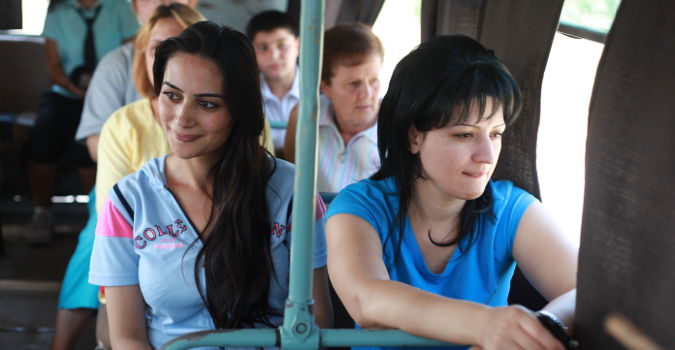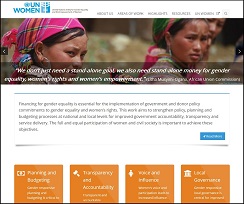National planning and budgeting

UN Women has worked in the area of gender-responsive policy making and budgeting in South East Europe since 2010. In the past five years (2014-2019), Albania, Bosnia and Herzegovina (BiH), Republic of North Macedonia and Republic of Moldova were part of the regional programme “Promoting gender-responsive policies in South East Europe and the Republic of Moldova”. In addition, UN Women country programmes in Serbia and Kosovo[1] supported government efforts to implement gender-responsive budgeting measures.
Click here to learn more about the programme and its achievements.
Our Approach
We advocate transparent and adequate public financing for gender equality, including the adoption of gender-responsive budgets that channel adequate resources to both women and men. UN Women’s broad range of partners include finance and planning ministries, local governments, parliamentarians, women’s organizations, civil society groups and academic organizations.
Since 2007, UN Women in Europe and Central Asia has piloted initiatives that have increased gender-responsive policy planning and contributed to gender-responsive budgeting being used in public finance reforms and for European Union (EU) accession processes. Gender-responsive budgeting has been recognized as an effective strategy to:
- position the budgeting system towards women’s and men’s needs;
- enable governments to respond to their gender equality commitments more comprehensively;
- increase the participation of women, men and civil society organizations in defining public policy goals.
UN Women currently supports gender-responsive budgeting interventions in Europe and Central Asia that are either stand-alone national initiatives or part of a global or regional programme.
[1] All references to Kosovo on this website shall be understood to be in full compliance with UN Security Council Resolution 1244 (1999).
Latest news
Featured Publication
This report, prepared for the 15th anniversary of Security Council resolution 1325, brings together research demonstrating that women’s empowerment and gender equality contribute to the conclusion of peace talks and sustainable peace. More

